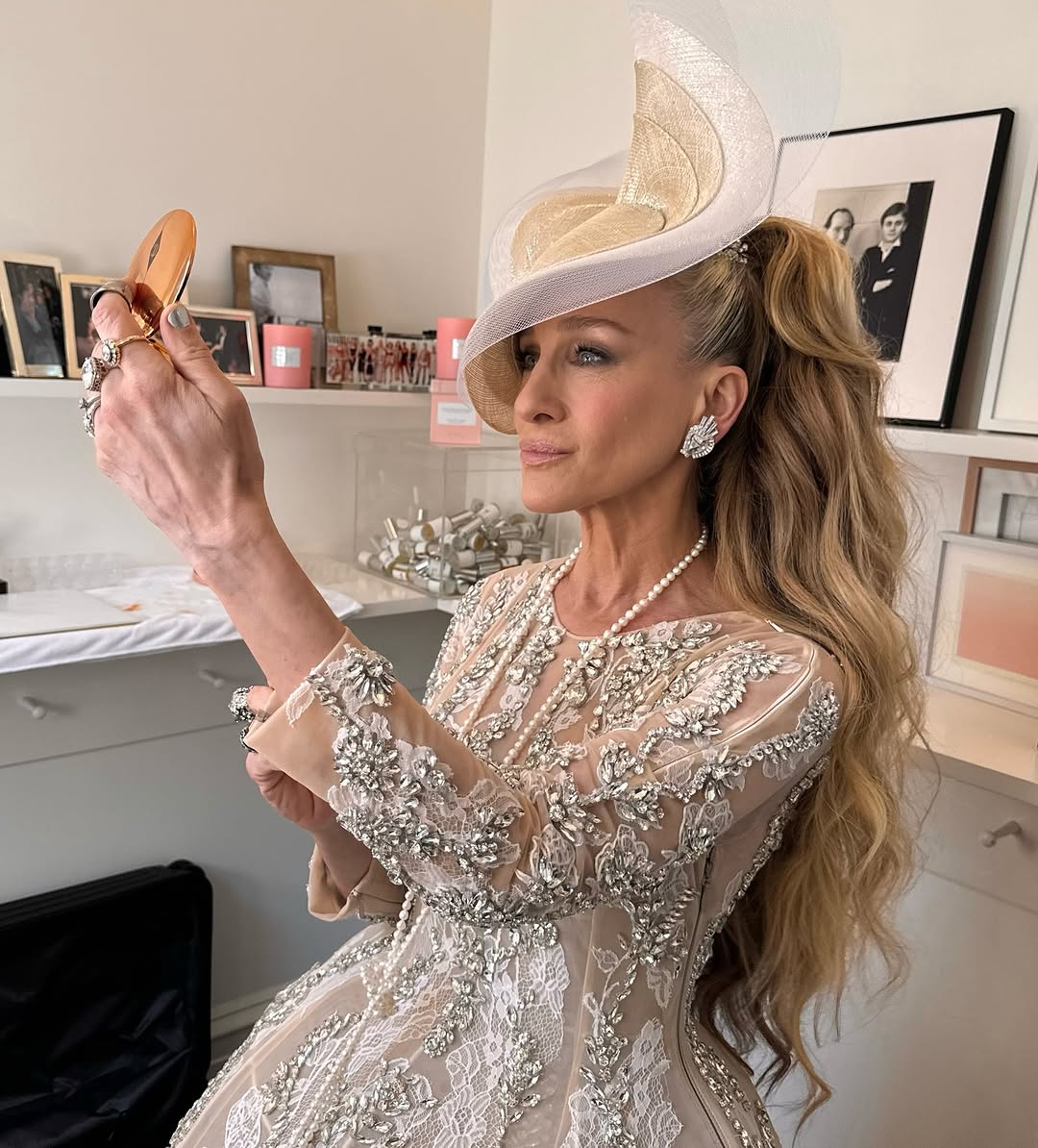How Sarah Jessica Parker Built a Multi-Platform Brand Worth Managing Like a Fortune 500 Company
When the Hollywood Foreign Press Association announced that Sarah Jessica Parker would receive the Carol Burnett Award at the 2025 Golden Globes, the news wasn’t just a celebration of longevity—it was a reminder of something else entirely: Parker has become one of the most strategically managed personal brands in entertainment. Few actors of her generation have converted early fame into a diversified, financially robust, and values-driven enterprise with such precision.
This is not simply a story about fame. It’s about brand architecture, long-term positioning, and how a creative professional quietly built an empire that mirrors the operational discipline of a mid-sized corporation.
From Performer to Portfolio Manager
Parker’s trajectory over four decades traces a clear evolution—from actress to producer, to designer, to publisher. Each pivot has been deliberate, measured, and underpinned by a core principle: ownership.
Following her global breakthrough in Sex and the City, Parker avoided the common pitfall of typecasting by shifting her focus behind the camera. She became an executive producer on And Just Like That and co-founded the production company Pretty Matches, securing creative control and profit participation across multiple projects. These were not vanity credits; they were calculated steps toward asset ownership.
In 2014, she extended her footprint into fashion with the SJP Collection—an independently financed luxury shoe and accessories brand sold through partnerships with Nordstrom and Bloomingdale’s. The brand’s steady performance, despite a crowded market, speaks to her meticulous brand curation and understanding of her audience: professional women with disposable income and an affinity for authenticity.
By 2022, she had added publishing to her portfolio, launching SJP Lit under Zando Books, focusing on diverse and female authors. The imprint aligns with her long-standing advocacy for women’s voices and ensures her brand remains culturally relevant beyond screen roles.

Sarah Jessica Parker
The Business of Longevity
For executives studying Parker’s path, there’s a clear takeaway: she’s built a durable brand. In a 2024 PwC media report, analysts highlighted that intellectual property (IP) ownership and cross-platform presence now account for more than 40% of long-term earnings for entertainment figures who move into production or brand ownership. Parker exemplifies that model.
Unlike many celebrity ventures that burn bright and fade, her diversification has been sustainable because it’s mission-aligned. Each business segment—production, fashion, publishing—feeds into a coherent narrative about independence, creativity, and trust.
The Carol Burnett Award doesn’t simply recognise her acting—it acknowledges this leadership and her broader influence across creative industries. It’s a signal that cultural credibility and commercial intelligence can coexist.
Managing a Personal Enterprise
Parker has never launched products for the sake of novelty. Her ventures are rooted in a sophisticated understanding of brand congruence—a principle well-known in corporate marketing but rarely mastered by individuals.
This consistency of tone and purpose mirrors corporate governance: a defined mission, stakeholder alignment, and disciplined expansion. She maintains direct oversight of design, creative approvals, and partnerships, mirroring the approach of CEOs who safeguard their core brand DNA.
Her refusal to over-license, for instance, protects the integrity of the SJP name. This restraint has proven financially wise. According to market data from Business of Fashion, luxury brands maintaining selective licensing generate 30–50% higher brand retention rates compared to mass-licensed celebrity lines. Parker’s discipline keeps her positioned in that premium tier.

Sarah Jessica Parker
Leadership Through Authenticity
In a marketplace saturated with influencer-led products, Parker’s model feels almost old-fashioned—but in the best sense. She’s built equity through credibility, not volume.
Leadership experts often reference “authentic capital”—the trust consumers place in a figure whose values match their actions. For Parker, this has translated into loyal customers and creative partners who treat her less like a celebrity and more like a strategic collaborator.
Her leadership style is collaborative yet firm. Industry colleagues have described her as “decisive but empathetic,” balancing creative integrity with commercial pragmatism. That balance—valuing art while understanding profit—is what differentiates a creative visionary from a sustainable brand leader.
The Financial Blueprint Behind Cultural Power
From a financial perspective, Parker’s career underscores the growing convergence between cultural and capital assets. Her portfolio approach—spanning intellectual property, consumer goods, and publishing—transforms reputation into recurring revenue.
Each vertical amplifies the others. A new television project revives interest in her fashion line; her publishing imprint attracts partnerships in the lifestyle sector; her social advocacy reinforces brand loyalty among consumers seeking ethical alignment. This synergy is what large consumer conglomerates aim for, yet she’s achieved it independently.
As branding strategist and marketing professor Dr. Americus Reed of Wharton once observed, “Authentic identity brands outperform because they build meaning, not just awareness.” Parker’s success validates that statement. Her influence rests not on fleeting virality but on compounded cultural value.

Sarah Jessica Parker
What CEOs Can Learn from Parker
For executives outside Hollywood, Parker’s model provides a rare case study in personal enterprise management.
1. Build for control, not celebrity. Ownership of content and IP ensures independence and sustainable income.
2. Diversify within your value system. Each extension should reinforce, not dilute, your brand.
3. Protect integrity over reach. Brand dilution destroys long-term equity faster than missed opportunities.
4. Use cultural credibility as a financial asset. Reputation is increasingly monetisable—but only when authentic.
The Power of a Long Game
At 60, Parker’s recognition at the Golden Globes is less a career retrospective and more a brand validation moment. She’s shown that thoughtful stewardship of one’s name, creative output, and financial decisions can outlast trends, scandals, and the volatility of fame.
In a culture driven by short-term attention, her path is a study in compounding value. She didn’t just play the long game—she defined it.
FAQs: Inside Sarah Jessica Parker’s Brand Strategy
Why is Sarah Jessica Parker considered a business leader as well as an actress?
Because she’s transitioned from performer to producer, brand owner, and publisher, controlling IP and revenue streams typically reserved for corporate entities.
What makes her brand strategy unique among celebrities?
Her approach is mission-driven and consistent. Every extension—fashion, production, publishing—reinforces her core message of empowerment, creativity, and authenticity.
How has Parker managed to stay relevant across decades?
Through strategic diversification, careful brand management, and cultural alignment. She evolves her brand without abandoning her foundational values.














